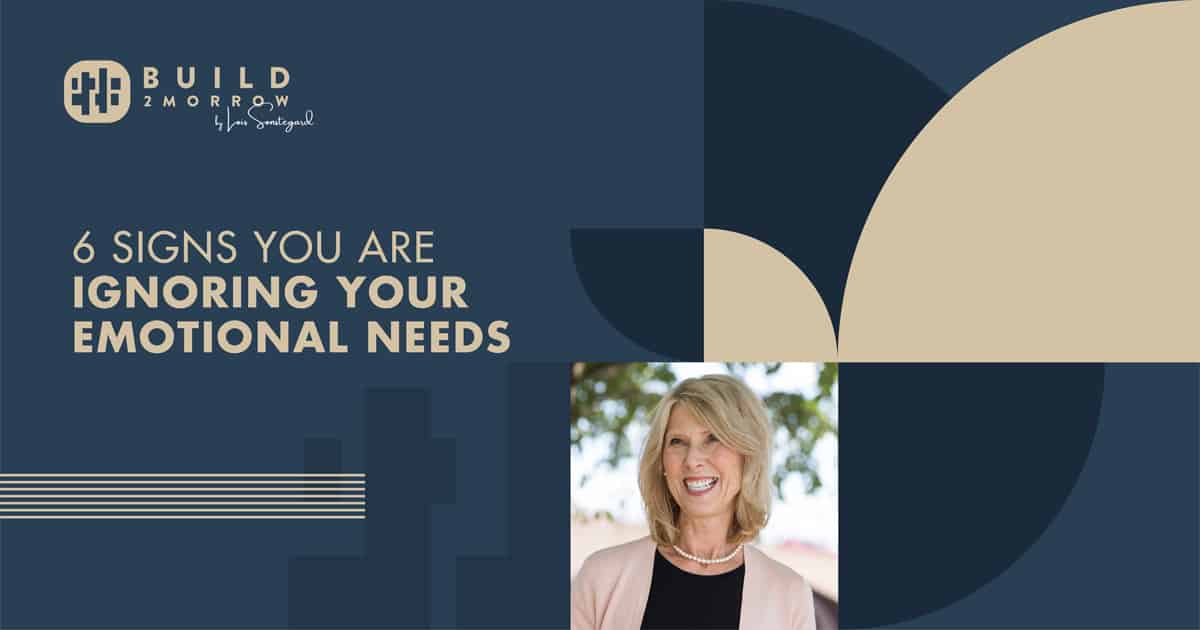We tend to put our emotional needs on a back-burner, believing them to be less important than other categories of needs. If we put these needs off for too long, however, they can start to impact our productivity and even our physical health.
You might not be able to address your emotional needs as soon as you feel them, but how do you know that you have been ignoring them for too long?
1. An Emotion Won’t Go Away
When you ignore your emotions, those feelings do not go away but instead they fester and typically manifest in physical ways, such as headaches, insomnia, depression or emotional eating. For example, depression is rage turned inward.
Emotions can be symptoms of our emotional needs just like other sensations can be symptoms of our physical needs.
If you feel that dull ache in your stomach it is a sign that you are hungry and that if you do not eat you are not meeting your needs. When you eat, the need is satisfied, and the ache goes away. If it doesn’t go away, you haven’t met that need. If you feel that dull ache in your mind or soul it is a sign of a need of a different kind and if you don’t address it won’t go away.
2. Everything Makes You Feel The Same Emotion
Like some physical symptoms, untreated emotional needs can spread to other parts of your life if left untreated.
What started out as a casual thought may begin to become a stressor that makes it difficult to concentrate in other tasks. Other tasks or events may also begin to remind you of the emotional need, even if they are seemingly unrelated. After a while, it may get to a point that it is on your mind no matter what you are doing. This can happen in some people with anxiety or depression.
3. You Excessively Eat, Exercise, Drink Liquor
If you feel the need to do something that usually satisfies a physical need, it could be your body trying to satisfy an emotional need through unproductive pathways.
This is often the case with people who eat when they are sad or anxious, though it can also be the case with people who exercise when they are anxious.
Trying to satisfy an emotional need through physical means can lead to poor physical health as well as the avoidance of giving the emotional need the emotional cure that it deserves.
4. You Have Emotions At Times That Don’t Make Sense
Sometimes, if an emotional need manifests through a particularly uncomfortable emotion, like sadness, we will distract ourselves by feeling other emotions instead, commonly anger. While it may seem like this emotion is protecting us from more uncomfortable emotions, what it is really doing is preventing us from addressing the emotional needs behind that emotion.
Sometimes feelings like anger can be a valid emotion that arises in difficult situations, but if you begin to feel angry at times that don’t make sense, it could be a sign that some other more pressing issue is hiding behind that anger. Identifying and solving that problem then solves your emotional need and prevents that “shielding emotion” from causing problems like misplaces emotions are prone to do.
5. You Feel Empty and Unfulfilled
Sometimes unmet emotional needs that haven’t been identified just feel like emptiness. This emptiness can be pervasive, even if we are meeting success in other aspects of our lives.
This is the emotional equivalent of never being able to eat enough to satisfy your hunger or enough water to satisfy thirst. If you have problems in a romantic relationship, or an ongoing dispute with a parent, no amount of job satisfaction is going to make you feel as though you have everything that you want.
This can sometimes lead people to get into trouble trying to work hard enough in one aspect of their life to let them forget their unmet emotional needs, which will never actually work.
6. You Don’t Process
Feelings need to be processed in healthy ways, typically talking about them with someone you trust is the best way in that it allows you to acknowledge them, address them and talk through them. Actually feeling your emotions which means being aware of them and walking through them helps maintain the ultimate state of emotional wellness.


Hello! Just dropped by to write great website. Keep up the good work youre doing!